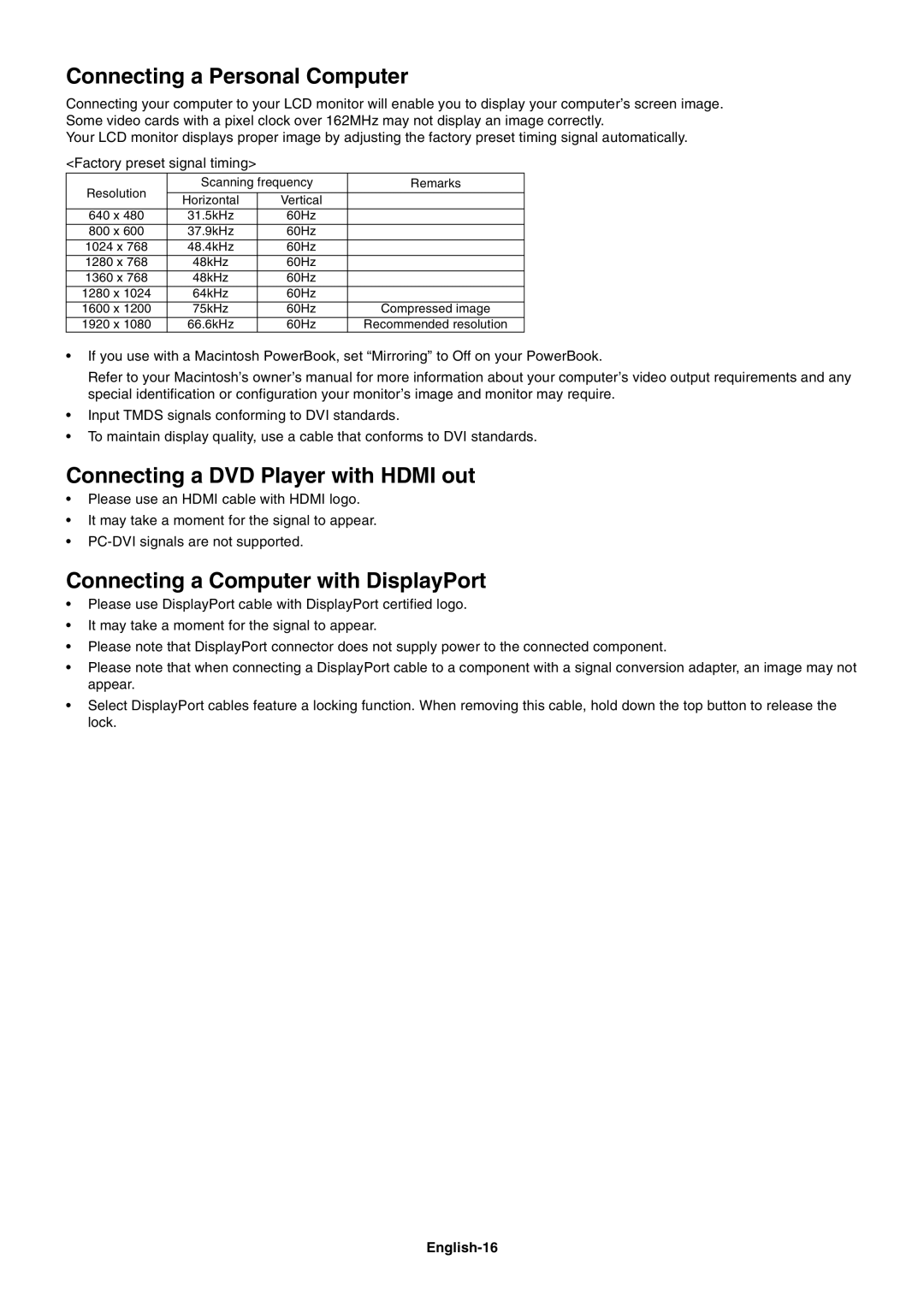Connecting a Personal Computer
Connecting your computer to your LCD monitor will enable you to display your computer’s screen image. Some video cards with a pixel clock over 162MHz may not display an image correctly.
Your LCD monitor displays proper image by adjusting the factory preset timing signal automatically.
<Factory preset signal timing>
Resolution | Scanning frequency | Remarks | |
|
|
| |
Horizontal | Vertical |
| |
|
| ||
640 x 480 | 31.5kHz | 60Hz |
|
800 x 600 | 37.9kHz | 60Hz |
|
1024 x 768 | 48.4kHz | 60Hz |
|
1280 x 768 | 48kHz | 60Hz |
|
1360 x 768 | 48kHz | 60Hz |
|
1280 x 1024 | 64kHz | 60Hz |
|
1600 x 1200 | 75kHz | 60Hz | Compressed image |
1920 x 1080 | 66.6kHz | 60Hz | Recommended resolution |
•If you use with a Macintosh PowerBook, set “Mirroring” to Off on your PowerBook.
Refer to your Macintosh’s owner’s manual for more information about your computer’s video output requirements and any special identification or configuration your monitor’s image and monitor may require.
•Input TMDS signals conforming to DVI standards.
•To maintain display quality, use a cable that conforms to DVI standards.
Connecting a DVD Player with HDMI out
•Please use an HDMI cable with HDMI logo.
•It may take a moment for the signal to appear.
•
Connecting a Computer with DisplayPort
•Please use DisplayPort cable with DisplayPort certified logo.
•It may take a moment for the signal to appear.
•Please note that DisplayPort connector does not supply power to the connected component.
•Please note that when connecting a DisplayPort cable to a component with a signal conversion adapter, an image may not appear.
•Select DisplayPort cables feature a locking function. When removing this cable, hold down the top button to release the lock.
